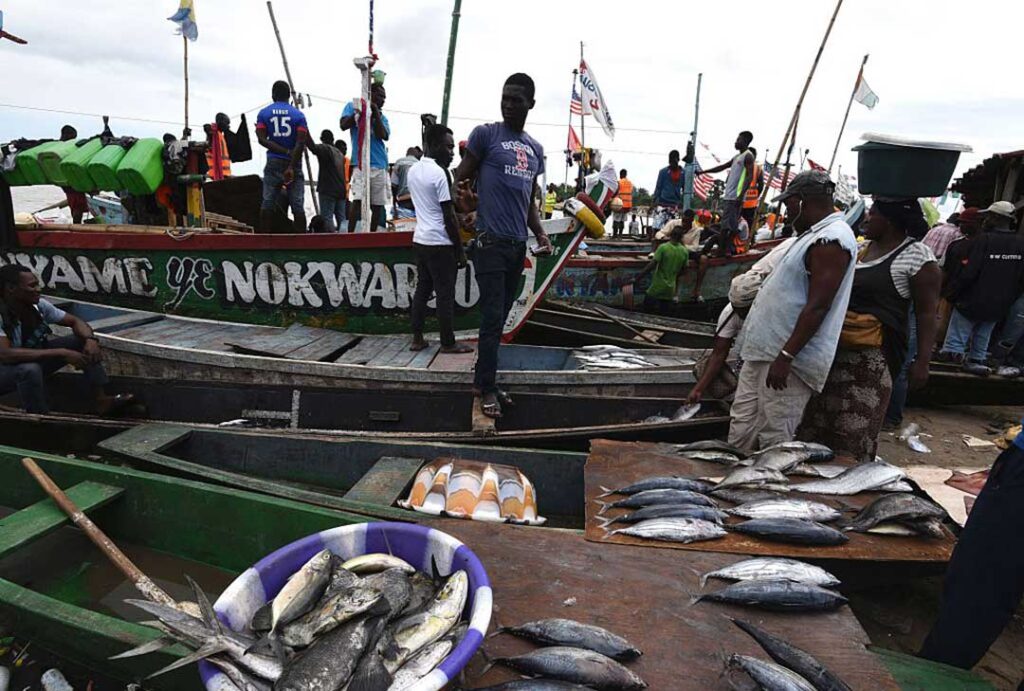ADF STAFF
West African officials are saying that the scourge of illegal fishing can only be addressed with a regionally united front. They are calling for greater cooperation on fisheries management, patrols and enforcement in the Gulf of Guinea.
Amadou Tall, leader of an Economic Community of West African States (ECOWAS) program to enhance fisheries governance in West Africa, made a plea for greater cooperation in December at the end of an annual conference of the Fisheries Committee for the West Central Gulf of Guinea (FCWC).
Cooperation in combating illegal, unregulated and unreported (IUU) fishing would reduce maritime security costs if all countries put their resources together.
“You cannot do the patrolling alone to fight IUU,” Tall said in a report by Ghanaian newspaper Daily Graphic, adding that Ghana could lead the effort.
FCWC’s member countries include Benin, Côte d’Ivoire, Ghana, Liberia, Nigeria and Togo. The countries formed the committee to promote and enhance cooperation related to fisheries management and sustaining fish stocks.
Regional fisheries bodies “can play an important role both in promoting awareness and in promoting long-term sustainable fisheries management practices where international cooperation is required,” Tall said in the Daily Graphic report.
In West Africa alone, IUU fishing robs coastal states of $2.3 billion a year and has contributed to the loss of 300,000 jobs.
In the last 50 years Africa has lost more than $200 billion to illegal fishing by vessels linked to foreign nations, according to Nigerian daily newspaper Blueprint. Illegal fishing is so rampant in West Africa that a United Nations report estimates that it is equivalent to 40% to 65% of the legally reported catch.
During the conference, FCWC Secretary General Seraphin Dedi Nadje said the committee was building a database on the fisheries sector in West Africa to help inform policies and decisions.
Nadje also urged member states to take seriously the concerns of artisanal fisheries and pay more attention to the aquaculture sector, both of which are important in improving food security and employment and growing countries’ economies.
Speaking at the conference, Kofi Agbogah, director of Hen Mpoano, a Ghanaian nongovernmental organization that provides technical, policy and extension support to coastal communities, urged the FCWC to continue to monitor and report the changing dynamics of IUU fishing practices.
Links to Piracy
Besides robbing West African nations of food and income, IUU fishing has been linked to pirate attacks in the Gulf of Guinea.
In 2020, the Gulf of Guinea accounted for more than 95% of all maritime kidnappings globally, according to the International Maritime Bureau. Although global piracy rates dropped to 18-year lows in 2021, the Gulf of Guinea still accounted for nearly all kidnappings incidents.
During a maritime security summit in May, Danish Ambassador to Nigeria Jesper Kamp characterized the issue as “very bleak.”
“The pirates have to a great extent shifted the focus towards kidnap for ransom and the assaults are becoming more well-coordinated with the pirates boarding the ship and even in one incident … able to breach the vessel’s citadel, a practice which is unusual in piracy attacks in the region,” Kamp said in a report by Nigerian website thisdaylive.com.

